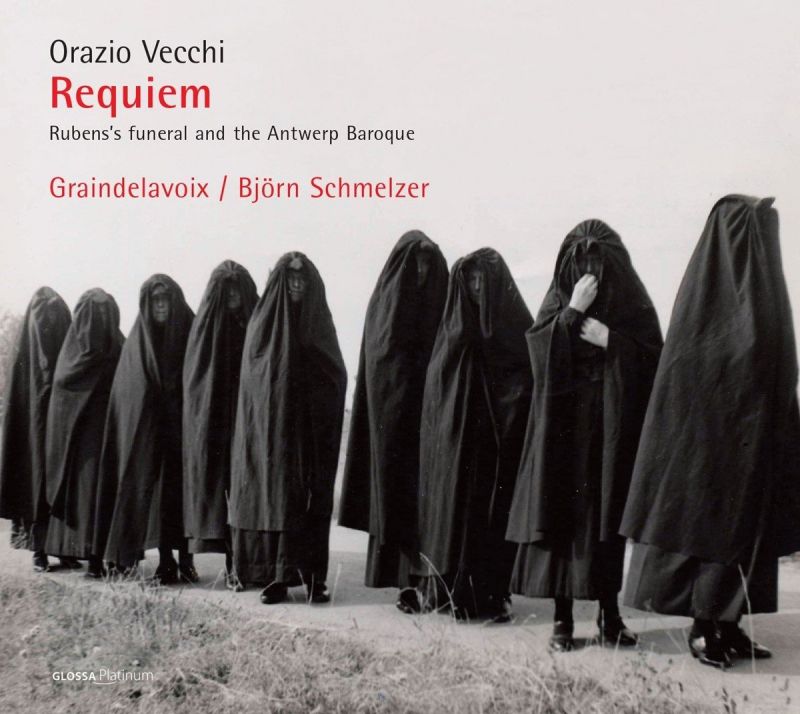VECCHI Requiem
View record and artist detailsRecord and Artist Details
Composer or Director: Duarte Lôbo, Orazio (Tiberio) Vecchi, Georges de la Hèle, Pedro Ruimonte
Genre:
Vocal
Label: Glossa
Magazine Review Date: 06/2017
Media Format: CD or Download
Media Runtime: 67
Mastering:
DDD
Catalogue Number: GCDP32113

Tracks:
| Composition | Artist Credit |
|---|---|
| Missa Praeter rerum seriem, Movement: Kyrie |
Georges de la Hèle, Composer
Björn Schmelzer, Conductor Georges de la Hèle, Composer Graindelavoix |
| Missa Praeter rerum seriem, Movement: Sanctus |
Georges de la Hèle, Composer
Björn Schmelzer, Conductor Georges de la Hèle, Composer Graindelavoix |
| Missa Praeter rerum seriem, Movement: Agnus Dei |
Georges de la Hèle, Composer
Björn Schmelzer, Conductor Georges de la Hèle, Composer Graindelavoix |
| Missa Dum aurora, Movement: Agnus Dei |
Duarte Lôbo, Composer
Björn Schmelzer, Conductor Duarte Lôbo, Composer Graindelavoix |
| Missa Ave virgo sanctissima, Movement: Agnus Dei |
Pedro Ruimonte, Composer
Björn Schmelzer, Conductor Graindelavoix Pedro Ruimonte, Composer |
| Requiem |
Orazio (Tiberio) Vecchi, Composer
Björn Schmelzer, Conductor Graindelavoix Orazio (Tiberio) Vecchi, Composer |
Author: Fabrice Fitch
Those performances are themselves not quite the finished article, though there’s no denying that the sound in itself is very seductive, especially with the full ensemble. Vecchi’s lengthy, double-choir ‘Dies irae’ ought to be the programme’s centrepiece, but a countertenor of unreliable tone quality and more uncertain intonation cuts the grass clean under it (the tuning of the top voices generally is hit-and-miss). Given the solemnity of the occasion for which polyphonic Requiems were intended, one might question how much ornamentation would have been considered appropriate, but the predictability of Graindelavoix’s embellishments reduce them to a collection of interpretative tics. My interest picked up for the excerpts of George de La Hèle’s Missa Praeter rerum seriem, but the concluding Agnus Dei by Duarte Lobo marks the return of a tenor voice that I’d (not) missed in the group’s most recent recordings (my earlier comparison with Liam Gallagher wasn’t meant as a compliment). At least no one could accuse Graindelavoix of leaving you indifferent.
Discover the world's largest classical music catalogue with Presto Music.

Gramophone Digital Club
- Digital Edition
- Digital Archive
- Reviews Database
- Full website access
From £8.75 / month
Subscribe
Gramophone Full Club
- Print Edition
- Digital Edition
- Digital Archive
- Reviews Database
- Full website access
From £11.00 / month
Subscribe
If you are a library, university or other organisation that would be interested in an institutional subscription to Gramophone please click here for further information.




